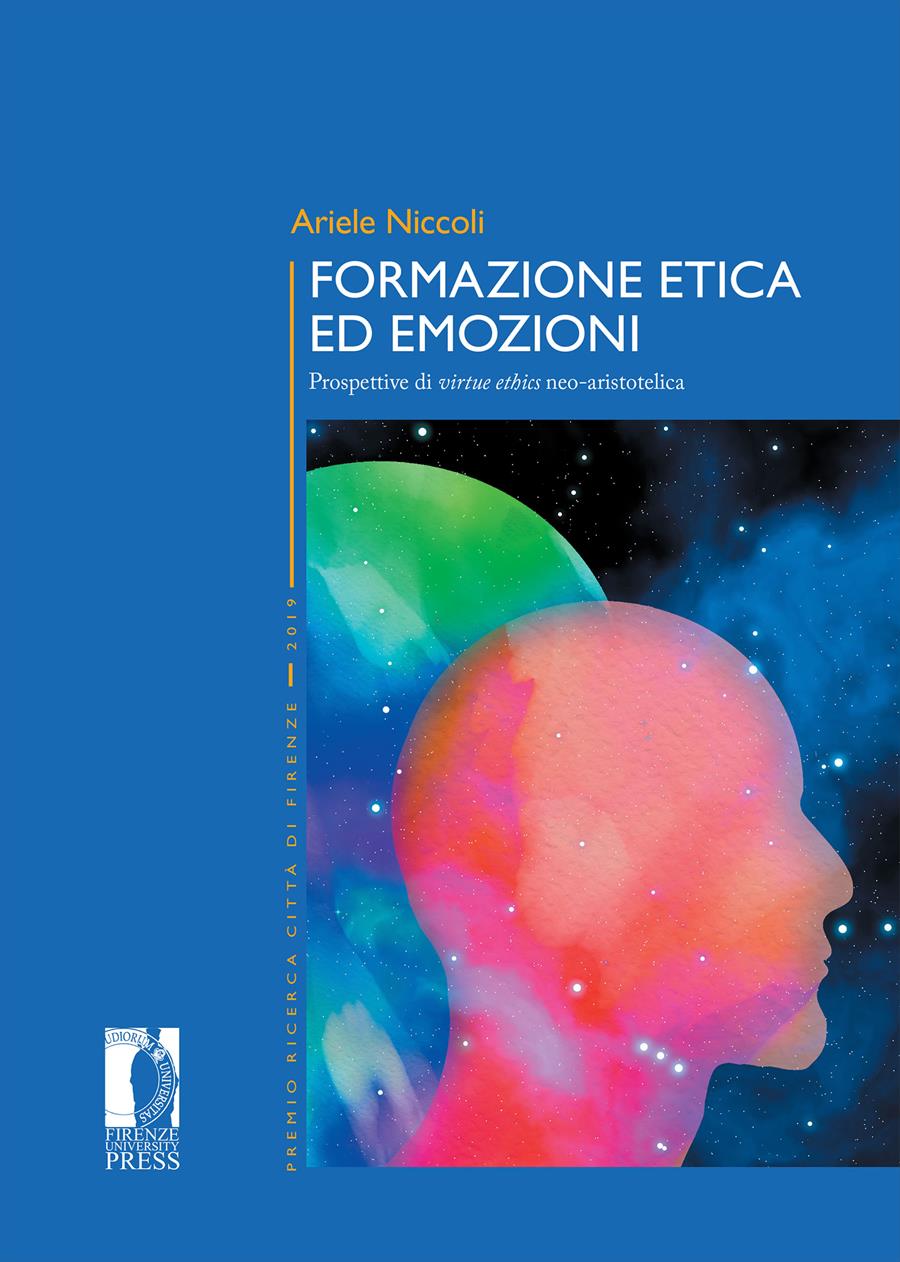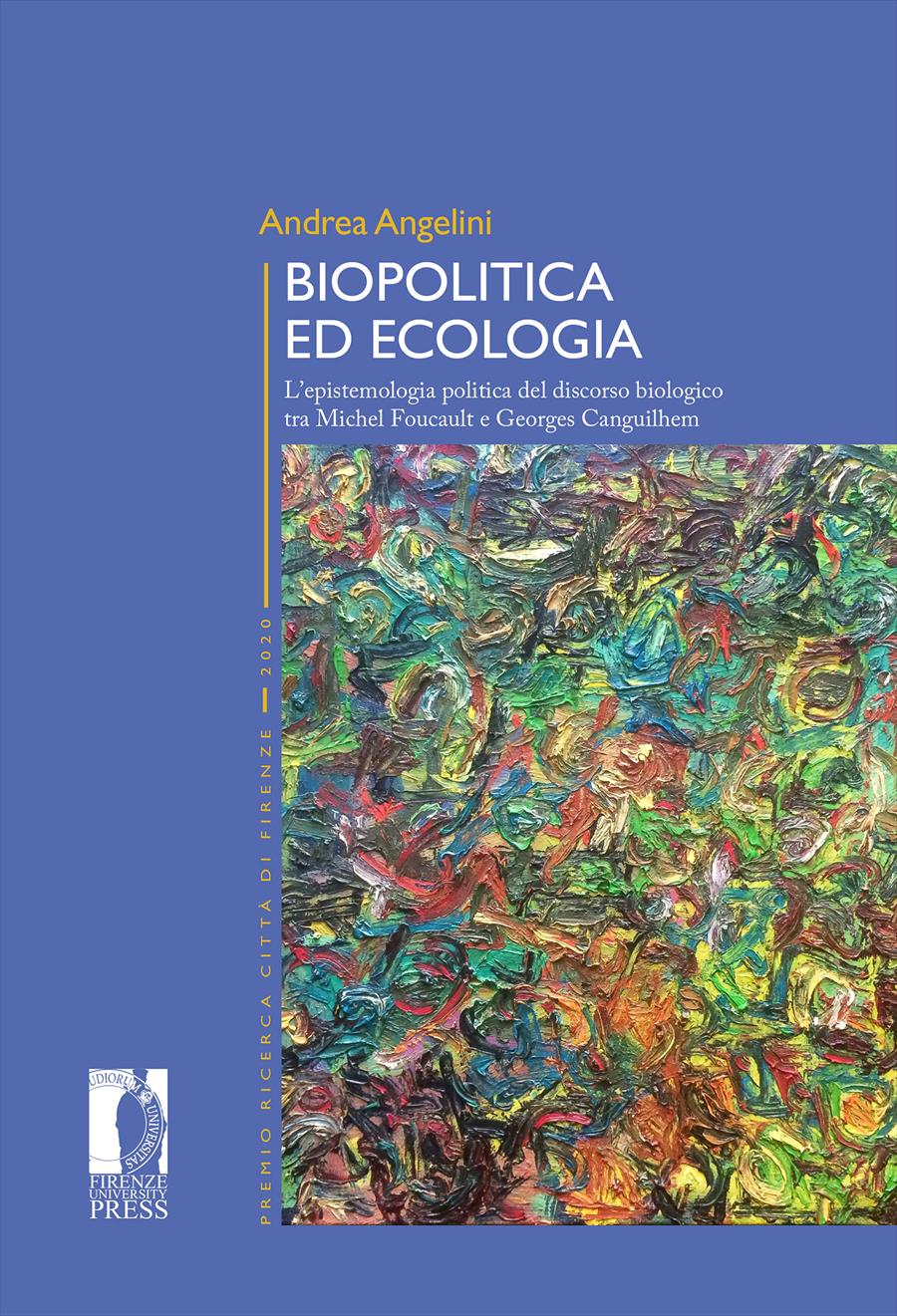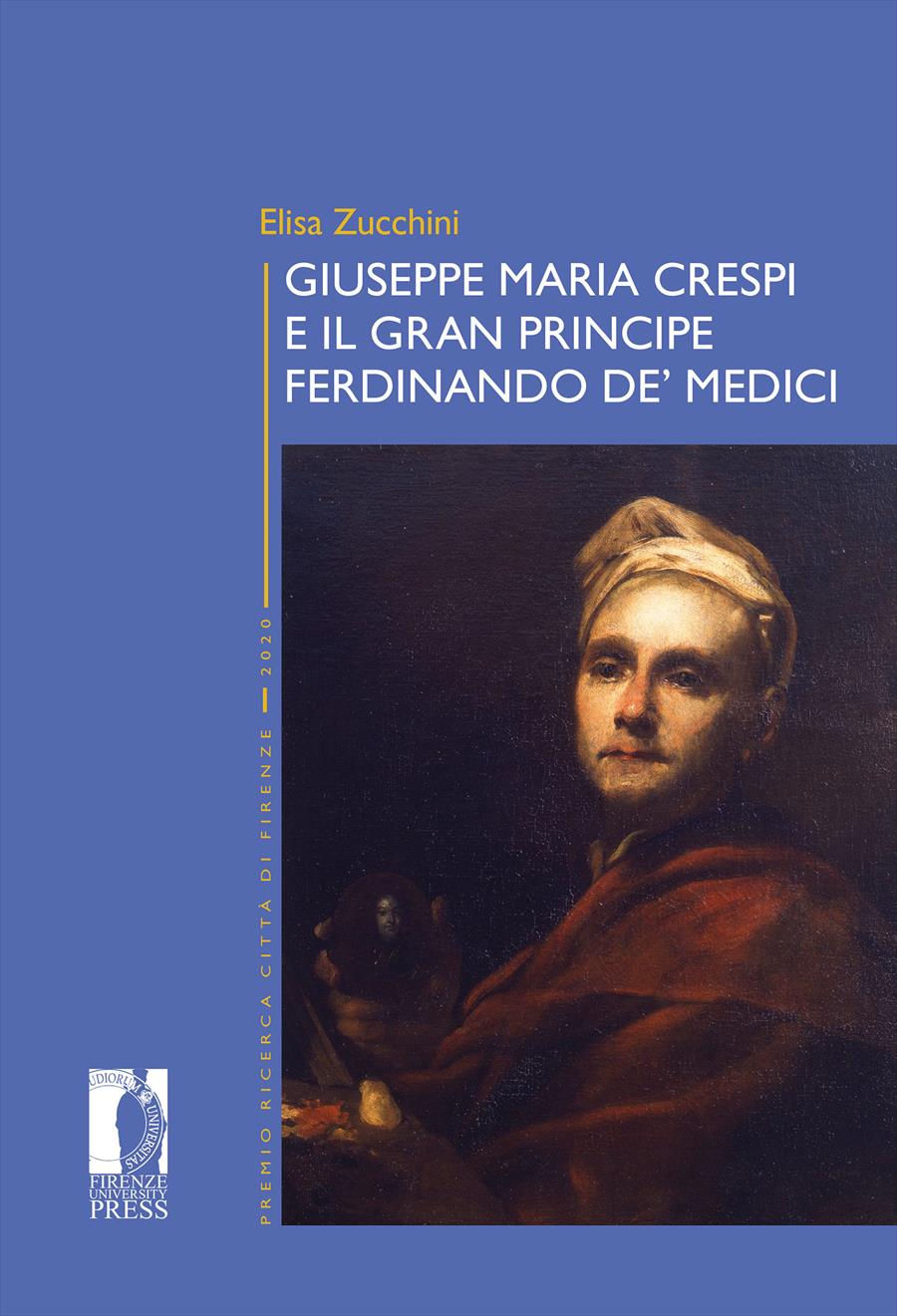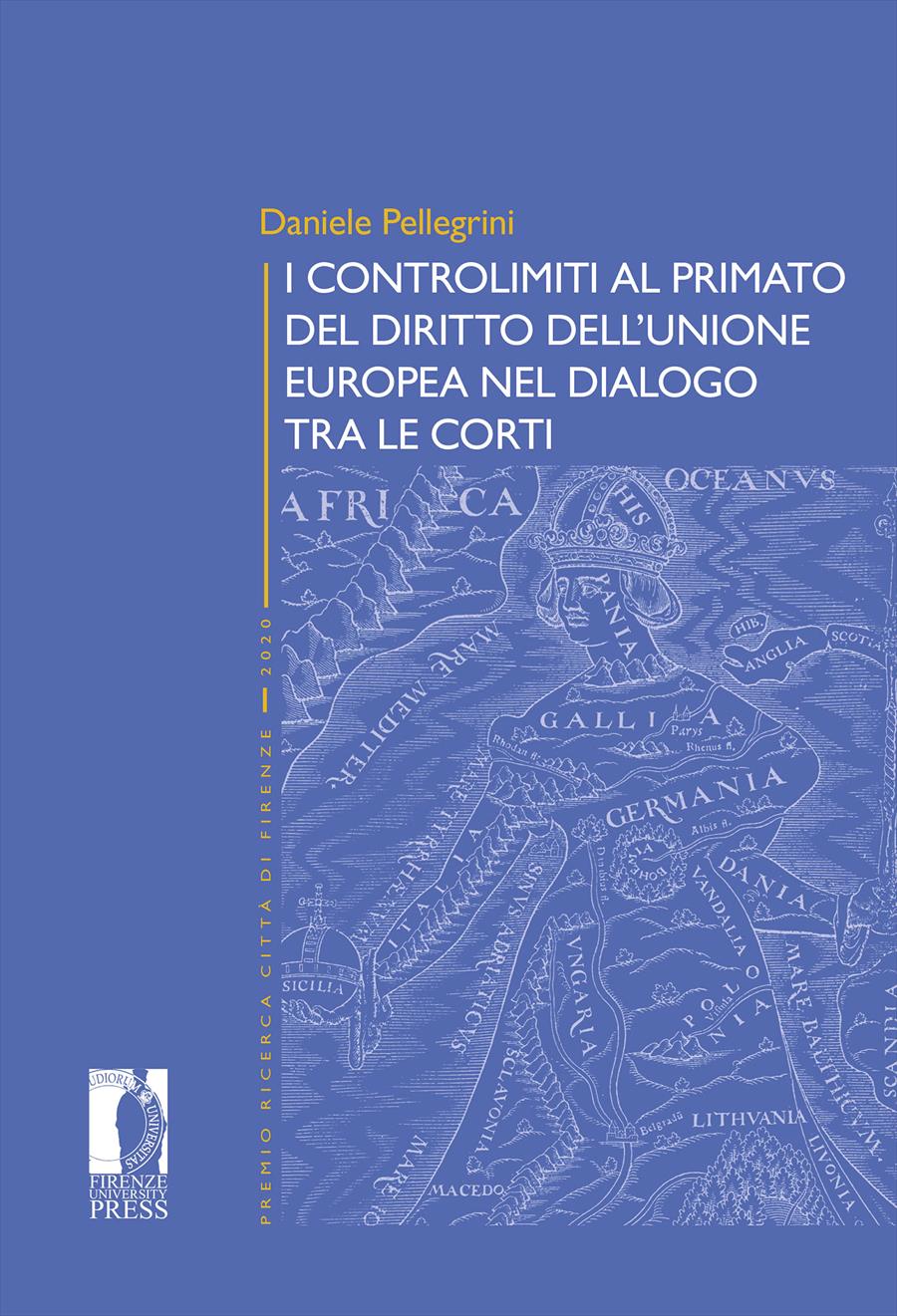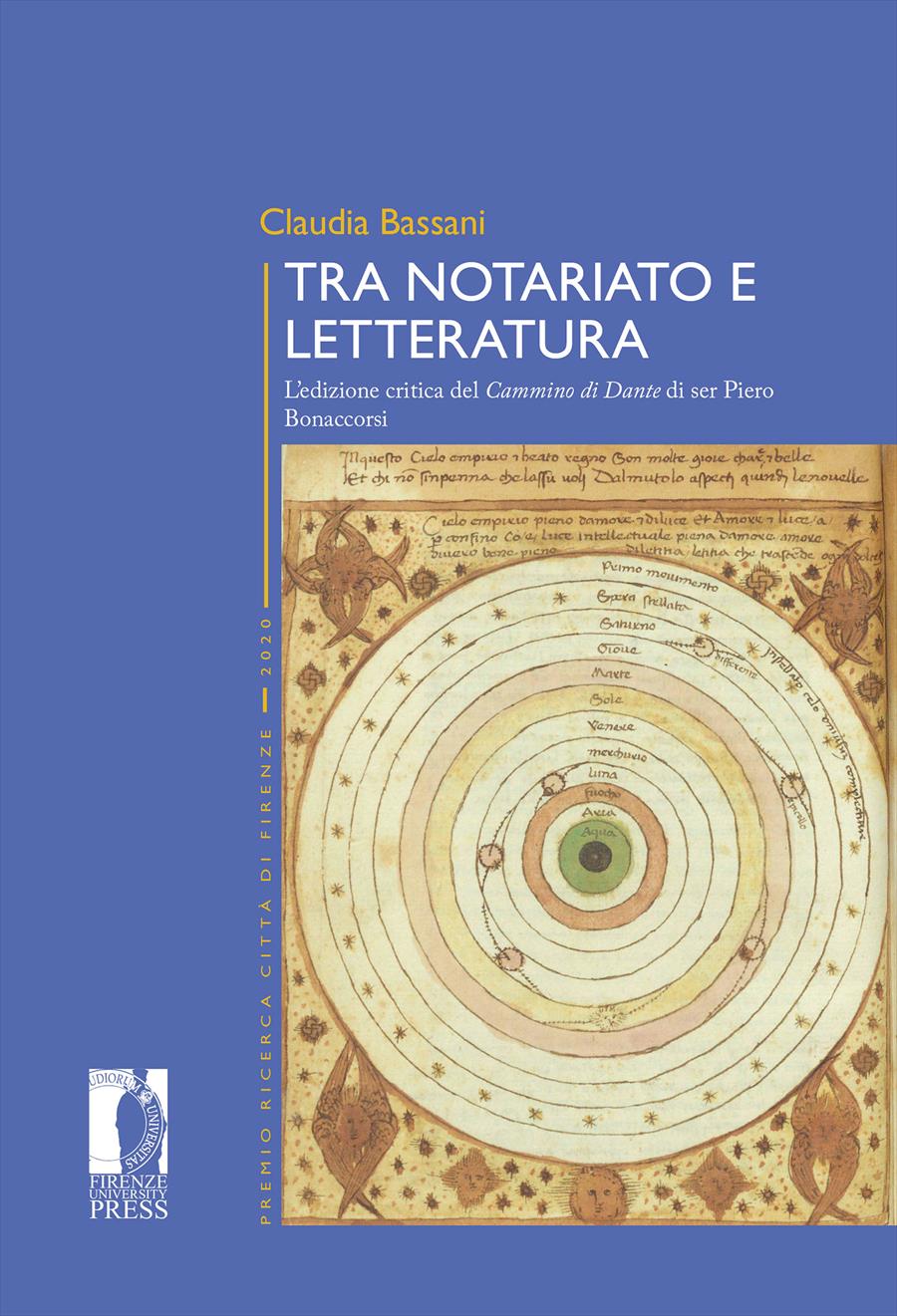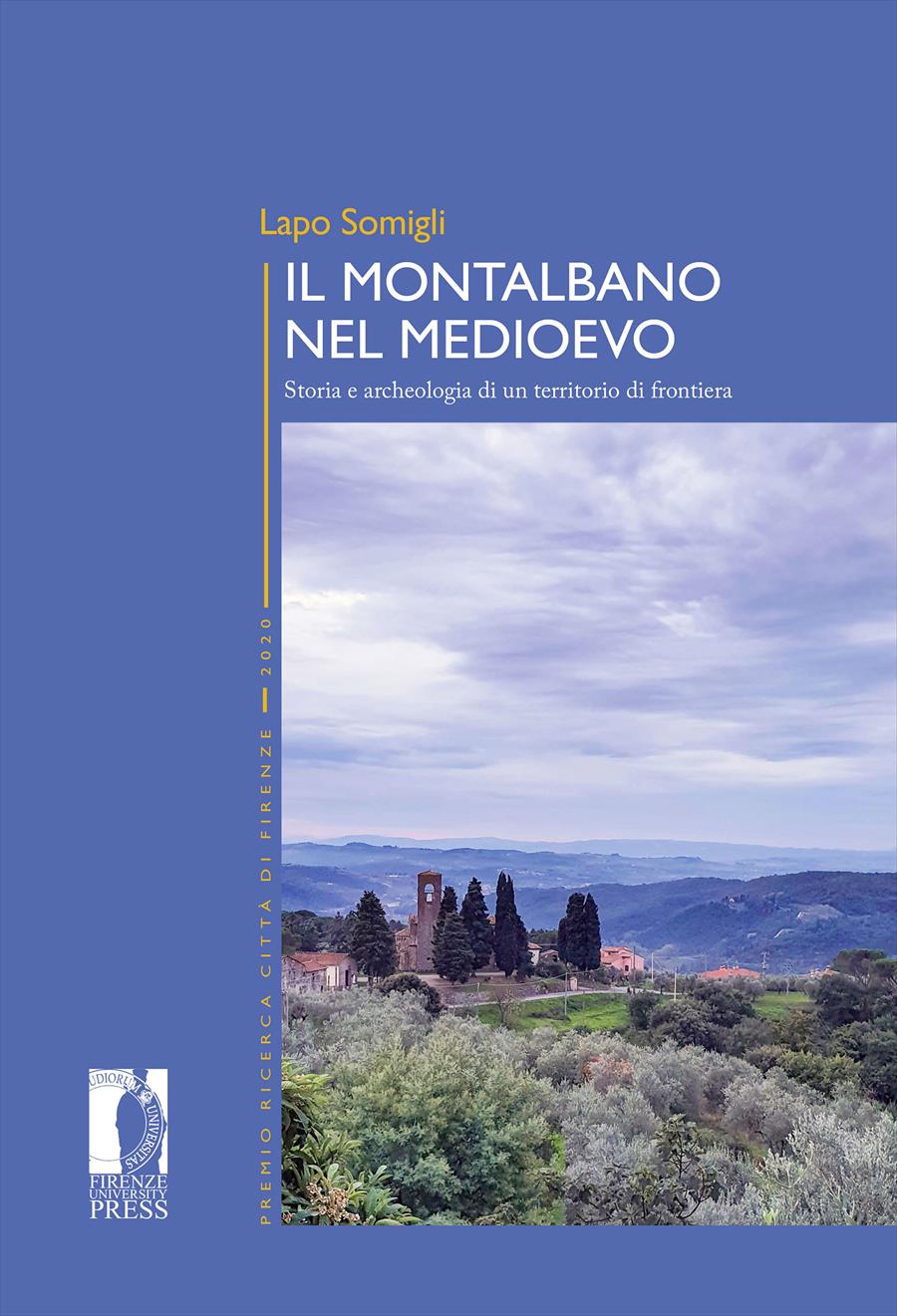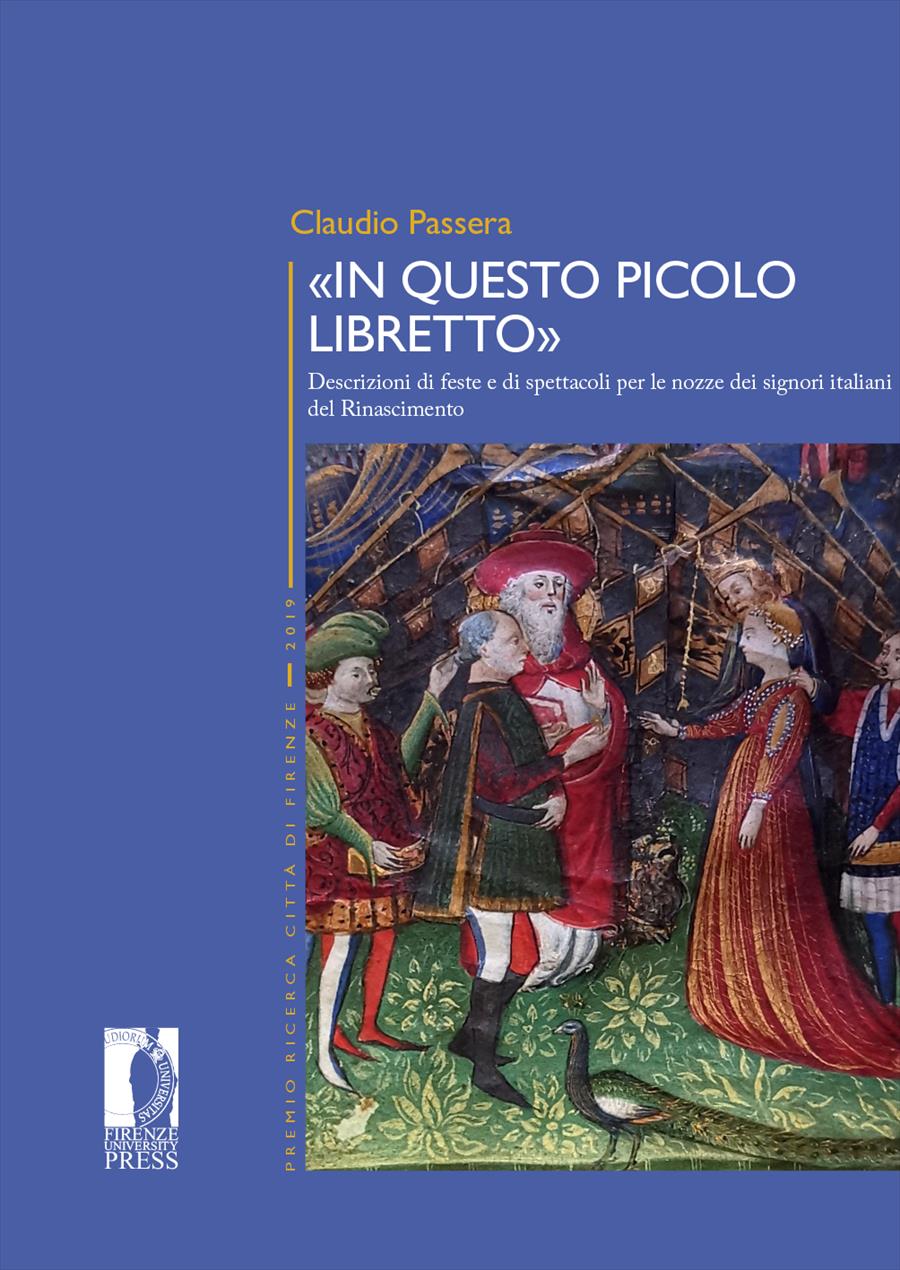Formazione etica ed emozioni
Prospettive di virtue ethics neo-aristotelica
- Ariele Niccoli,
Affectivity – especially the emotions – are proved to be a key-point of ethical formation. This book aims at clarifying which thesis the neo-aristotelian Virtue Ethics hold about emotion education, by integrating philosophy of education, philosophy of emotions and moral epistemology. Virtue Ethics, compared to deontology and utilitarianism-consequentialism, offers the more appropriate framework to conceive the relations between education, emotions and ethics. The volume discusses cognitive-evaluative theories of emotions and address the anti-rationalist challenge, based on empirical evidence about how emotions impact on moral judgments. Anti-rationalism, it is argued, is incompatible with the purpose of shaping the emotions looking at our best moral reasons. Then, two Aristotelian educational theses are put forward: all the emotional dispositions – both ‘positive’ and ‘negative’ – should be cultivated, and all the emotional dispositions admit an appropriate moral form.
- Keywords:
- emotions,
- virtue ethics,
- moral education,
- Aristotle,
- DOI: 10.36253/978-88-5518-117-4
- Series: Premio Ricerca «Città di Firenze»
- Scientific Board
- Language: Italian
- Subjects: Philosophy
Italian University Line, Italy - ORCID: 0000-0001-7869-8451
- ALGOE S. B., HAIDT J., Witnessing Excellence in Action: the ‘Other-praising’ Emotions of Elevation, Gratitude, and Admiration, in “The Journal of Positive Psychology”, 4, 2009, pp. 105-127.
- ANNACONTINI G., Affettività e rapporto con l’extrascuola, in M. BALDACCI (a cura di), I profili emozionali dei modelli didattici, Milano, Angeli, 2009, pp. 111-134.
- ANNAS J., Intelligent Virtue, Oxford, Oxford University Press, 2011.
- ANNAS J., The Morality of Happiness, Oxford, Oxford University Press, 1993, trad. it. La morale della felicità. In Aristotele e nei filosofi dell’età ellenistica, Milano, Vita e Pensiero, 1998.
- ANSCOMBE G. E. M., Modern Moral Philosophy, in “Philosophy”, 124, 1958, pp. 1-19, trad. it., Filosofia morale moderna, in “Iride”, 1, 2008, pp.47-70.
- ARISTOTELE, Etica Nicomachea, a cura di C. NATALI, Roma-Bari, Laterza, 1999.
- ARISTOTELE, Metafisica, a cura di E. BERTI, Bari-Roma, Laterza, 2017.
- ARISTOTELE, Retorica, a cura di F. CANNAVÒ, Milano, Bompiani, 2014.
- ARTHUR J., KRISTJÁNSSON K., HARRISON T., SANDERS W., WRIGHT D., Teaching Character and Virtue in Schools, London, Routledge, 2016.
- ATHANASSOULIS N., A Response to Harman: Virtue Ethics and Character Traits, in “Proceedings of the Aristotelian Society” (New Series), 100, 2000, pp. 215-21.
- BALDUZZI E., La pedagogia alla prova della virtù. Emozioni, empatia e perdono nella pratica educativa, Milano, Vita e Pensiero, 2015.
- BARON M., PETTIT P., SLOTE M., Three Methods of Ethics, Oxford, Blackwell, 1997.
- BECKER L. C., A New Stoicism, Princeton, Princeton University Press, 1998.
- BEN ZE’EV A., The Sublety of Emotions, Cambridge, MA, MIT Press, 2000.
- BERTI E. (a cura di), Tradizione e attualità della filosofia pratica, Genova, Marietti, 1988.
- BERTI E., Filosofia pratica, Napoli, Guida, 2004.
- BERTI E., La ricezione delle virtù dianoetiche nell’ermeneutica contemporanea, in “Paradigmi”, 57, 2001, pp. 375-392.
- BESSER-JONES L., SLOTE M., The Routledge Companion to Virtue Ethics, New York, Routledge, 2015.
- BORTOLOTTI L., Does reflection lead to wise choises?, in “Philosophical Explorations”, 3, 2011, pp. 297-313.
- BRADY M., Emotional Insight. The Epistemic Role of Emotional Experience, New York, Oxford University Press, 2013.
- CALHOUN C., An Apology for Moral Shame, in “Journal of Political Philosophy”, 11, 2004, pp. 1-20.
- CAMBI F., FEDERIGHI P., MARIANI A. (a cura di), La pedagogia critica e laica a Firenze: 1950-2015. Modelli. Metamorfosi. Figure, Firenze, Firenze University press, 2016.
- CAMBI F., Filosofe dell’educazione come eredi del razionalismo critico. Da Colicchi a Fadda, da Xodo a Mortari: quattro modelli, in “Studi sulla formazione”, 1, 2014, pp. 57-63.
- CAMBI F., L’epistemologia pedagogica oggi, in “Studi sulla formazione”, 1, 2008, pp. 157-163.
- CAMBI F., La forza delle emozioni: per la cura di sé, Ospedaletto, Pacini, 2015.
- CAMBI F., La ricerca in pedagogia, Firenze, Le Monnier, 1976.
- CAMBI F., Manuale di filosofia dell’educazione, Roma-Bari, Laterza, 2005.
- CAMBI F., Mente e affetti nell’educazione contemporanea, Roma, Armando, 1996.
- CAMPODONICO A., CROCE M., VACCAREZZA M. S., Etica delle virtù. Un’introduzione, Roma, Carocci, 2017.
- CANDIOTTO L., Boosting cooperation. The beneficial function of positive emotions in dialogical inquiry, in “Humana.Mente Journal of Philosophical Studies”, 33, 2017, pp. 59-82.
- CARR D., ARTHUR J., KRISTJÁNSSON K. (a cura di), Varieties of Virtue Ethics, London, Palgrave Macmillan, 2017.
- CARR D., Educating the Virtues, Essay on the Philosophical Psychology of Moral Development and Education, London, Routledge, 1991.
- CARR D., J. STEUTEL (a cura di), Virtue Ethics and Moral Education, London, Routledge, 1999.
- CATTANEI E., “Al di sotto” di emozioni e virtù? La “bestialità” in Platone e in Aristotele, in S. LANGELLA, M. S. VACCAREZZA (a cura di), Emozioni e virtù. Percorsi e prospettive di un tema classico, Napoli-Salerno, Orthotes, 2014, pp., 23-44.
- CHRISTEN M. (a cura di), Empirically Informed Ethics, Morality between Facts and Norms, Cham, Springer, 2014.
- CLARK S., SIM and the City: Rationalism in Psychology and Philosophy and Haidt’s Account of Moral Judgments, in “Philosophical Psychology”, 21, 2008, pp. 799-820.
- COLICCHI E. (a cura di), Per una pedagogia critica. Dimensioni teoriche e prospettive pratiche, Roma, Carocci, 2009.
- COLICCHI E., La teoria pedagogica, in BALDACCI M., COLICCHI E. (a cura di), Teoria e prassi in pedagogia. Questioni epistemologiche, Roma, Carocci, 2016.
- COLICCHI E., Razionalismo Critico, in F. CAMBI, L. SANTELLI BECCEGATO (a cura di), Modelli di formazione, Torino, UTET, 2004, pp. 59-80.
- COLICCHI E., Ricerca educativa e razionalità pratica, in “Studi sulla formazione”, 1, 2014, pp. 47-54.
- COLOMBETTI G., The Feeling Body. Affective Science meets the Enactive Mind, Cambridge, MA, MIT Press.
- CONTINI M., Per una pedagogia delle emozioni, Scandicci, La Nuova Italia, 1992.
- COVA F., DEONNA J., SANDER D., Introduction: Moral Emotions, in “Topoi”, 34, 2015, pp. 397-400.
- COX D., LA CAZE M., LEVINE M., Integrity, in “The Stanford Encyclopedia of Philosophy” (Spring 2017 Edition), E. N. ZALTA (a cura di), URL: https://plato.stanford.edu/archives/spr2017/entries/integrity/.
- COX D., LA CAZE M., LEVINE M., Integrity, in S. VAN HOOFT (a cura di), The Handbook of Virtue Ethics, Durham, Acumen Press, 2014, pp. 200-209.
- CRANE T. (a cura di), The Contents of Experience: Essay on Perception, Cambridge, Cambridge University Press, 1992.
- CRANE T., CRAIG F., The Problem of Perception, in “The Stanford Encyclopedia of Philosophy”, E. N. ZALTA (a cura di), URL: https://plato.stanford.edu/archives/spr2017/entries/perception-problem/.
- CROCE M., VACCAREZZA M. S., Educating through exemplars: Alternative paths to virtue, in “Theory and Research in Education”, 2017.
- CROCE, Epistemologia delle virtù, in “APhEx. Portale italiano di filosofia analitica”, 15, 2017.
- CURREN R., Aristotle’s Educational Politics and the Aristotelian Renaissance in Philosophy of Education, in “Oxford Review of Education”, 36, 2010, pp. 543-559.
- CURZER H. J., Aristotle and the Virtues, Oxford University Press, Oxford, 2012.
- D’ADDELFIO G., Desiderare e fare il bene. Un commento pedagogico all’Etica Nicomachea, Milano, Vita e Pensiero, 2008.
- D’ARMS J., JACOBSON D. (a cura di), Moral Psychology and Human Agency, New York, Oxford University Press, 2015.
- D’ARMS J., JACOBSON D., Sensibility Theory and Projectivism, in D. COPP (a cura di), The Oxford Handbook of Ethical Theory, Oxford, Oxford University Press, 2006, pp. 186-218.
- D’ARMS J., JACOBSON D., The Moralistic Fallacy, on the ‘Appropriateness’ of Emotions, in “Philosophy and Phenomenological Research”, 1, 2000, pp. 65-90.
- DE MONTICELLI R., L’ordine del cuore. Etica e teoria del sentire, Milano, Garzanti, 2003.
- DE SOUSA R, MORTON A., Emotional True, in “Proceedings of the Aristotelian Society. Supplementary Volumes”, 76, 2002, pp. 247-275.
- DE SOUSA R., The Rationality of Emotion, London, MIT Press, 1987.
- DE SOUSA, Moral Emotions, in “Ethical Theory and Moral Practice”, 4, 2001, pp. 109-126.
- DEIGH J., Cognitivism in the Theory of Emotions, in “Ethics”, 104, 1994, pp. 824-854.
- DEONNA J., RODOGNO R., TERONI F., In Defense of Shame, Oxford, Oxford University Press, 2012.
- DEONNA J., TERONI F., From Justified Emotions to Justified Evaluative Judgments, in “Dialogue”, 51, 2012, pp. 55-77.
- DEONNA J., TERONI F., Taking Affective Explanations to Heart, in “Social Science Information”, 3, 2009, pp. 359-377.
- DEONNA J., TERONI F., The Emotions. A Philosophical Introduction, New York, Routledge, 2012.
- DEWEY J., Le fonti di una scienza dell’educazione (1929), trad. it., Firenze, La nuova Italia, 19372.
- DOKIC J., LAMAIRE S., Are Emotions Perceptions of Value?, in “Canadian Journal of Philosophy”, 2, 2013, pp. 227-247.
- DONNINI MACCIÒ M. C., Educazione e filosofia in Aristotele, Torino, Loesher, 1979.
- DORIS J. M., 1998, Persons, Situations and Virtue Ethics, in “Noûs”, 4, 1998, pp. 504-30.
- DORIS J., Lack of Character. Personality and Moral Behaviour, Cambridge, Cambridge University Press, 2002.
- DOUGLASS R. B., MARA G., RICHARDSON H. (a cura di), Liberalism and the Good, London, Routlegde, 1990.
- EKMAN P., Emotions in the Human Face, New York, Pergamon Press, 1972.
- FABBRI M., Istinto, emozione, conoscenza. La centralità dell’esperienza emozionale fra ontogenesi e filogenesi, in “Research Trends in Humanities Education & Philosophy”, 5, 2018, pp. 29-39.
- FABBRI M., La mente emotiva. Narrazioni e sfide evolutive nella civiltà della cura e dell’empatia, in: G. ANNACONTINI, R. GALLELLI (a cura di), Formare altre(i)menti, Bari, Progedit, 2014, pp. 17-38.
- FOOT P., Natural Goodness, Clarendon Press, trad. it., La natura del bene, Bologna, il Mulino, 2007.
- FOOT P., Virtues and Vices, Oxford, Blackwell, 1978, trad. it., Virtù e vizi, Bologna, Il Mulino, 2008.
- FORTENBAUGH W. W., Aristotle on Emotion, London, Duckworth, 2002.
- FRABBONI F., PINTO MINERVA F., Introduzione alla pedagogia generale, Roma-Bari, Laterza, 2003.
- FRANKFURT H., Identification and Wholeheartedness, in FERDINAND SCHOEMAN F. (a cura di), Responsibility, Character, and the Emotions: New Essays in Moral Psychology, New York, Cambridge University Press, 1987, pp. 33-34.
- FRENCH P. A., UHELING, T. E. JR., AND WETTESTEIN, H. K. (a cura di), Midwest Studies in Philosophy Volume XIII. Ethical Theory: Character and Virtue, Notre Dame, University of Notre Dame Press.
- FRIEDMAN M., Feminist Virtue Ethics, Happiness and Moral Luck, in “Hypatia”, 24, 2009, pp. 29-40.
- FRIJDA N., The Laws of Emotions, Mahwah, NJ, Lawrence Erlbaum, 2007.
- FUSSI A., Per una teoria della vergogna, Pisa, ETS, 2018.
- GARDINER S. M., Virtue Ethics. Old and New, Ithaca-London, Cornell University Press, 2005.
- GAUSEL N., LEACH C. W., Concern for Self-image and Social Image in the Management of Moral Failure: Rethinking Shame, in “European Journal of Social Psychology”, 41, 2011, pp. 468-478.
- GIOSI M., L’epistemologia pedagogica anglosassone: tra Kneller, Peters, Sheffler e oltre, Milano, UNICOPLI, 2010.
- GOLDIE P. (a cura di), The Oxford Handbook of Philosophy of Emotions, New York, Oxford University Press, 2010.
- GOLDIE P., The Emotions: A Philosophical Exploration, Oxford, Oxford University Press, 2000.
- GOTTLIEB P., The Virtue of Aristotle’s Ethics, Cambridge, Cambridge University Press, 2009.
- GRANESE A., La condizione teorica. Materiali per la formazione del pedagogista, Milano, UNICOPLI, 1990.
- GRANESE A., La ricerca teorica in pedagogia, Firenze, La Nuova Italia, 1975.
- GRIFFITHS P., What Emotions Really Are: The Problem of Psychological Categories, Chicago, Chicago University Press, 1997.
- HAIDT J., Elevation and the positive psychology of morality, in C. L. M. KEYES, C. L. M., J. HAIDT (a cura di), Flourishing: positive psychology and the life well-lived, Washington, DC, American Psychological Association, 2009, pp. 275-289.
- HAIDT J., The Emotional Dog and its Rational Tail, in “Psychological Review”, 4, 2001, pp. 814-834.
- HARDIE W. F. R., Aristotle’s Doctrine that Virtue is ‘a “Mean”, in “Proceedings of the Aristotelian Society”, 65, 1964, pp. 183-204.
- HARMAN G., 1999, Moral Philosophy Meets Social Psychology: Virtue Ethics and the Fundamental Attribution Error, in “Proceedings of the Aristotelian Society” (New Series), 119, 1999, pp. 316-31.
- HATZIMOYSIS A. (a cura di), Philosophy and The Emotions, Cambridge, Cambridge University Press, 1993.
- HAYDON G., Reason and Virtues, The Paradox of R. S. Peters on Moral Education, in “Journal of Philosophy of Education”, 43, 2010, pp. 143-188.
- HOGARTH R. M., Educating Intuition, Chicago, University of Chicago Press, 2001.
- HOWIE G. e INNOCENTI P. (a cura di), Aristotele. Sull’educazione, Firenze, La Nuova Italia, 1972.
- HUMBERSTONE L., Direction of Fit, in “Mind”, 401, 1992, pp. 59-83.
- HUME D., Opere, vol.1, a cura di E. LECALDANO, Roma-Bari, Laterza, 2008.
- HURSTHOUSE R., PETTIGROVE G., Virtue Ethics, in “The Stanford Encyclopedia of Philosophy” (Winter 2016 Edition), E. N. ZALTA (a cura di), URL: https://plato.stanford.edu/archives/win2016/entries/ethics-virtue.
- IRWIN T. H., Nil Admirari? Uses and Abuses of Admiration, in “Aristotelian Society”, suppl. vol. 89, 2015, pp. 223-248.
- JONES K., Metaethics and Emotions research. A response to Prinz, in “Philosophical Explorations”, 1, 2006, pp. 45-53.
- KAHNEMAN D., FREDERICK S., Representativeness Revisited: Attribute Substitution in Intuitive Judgement, in T. GILOVICH, D. GRIFFIN e D. KAHNEMAN (a cura di), Heuristic and Biases: The Psychology of Intuitive Judgement, New York, Cambridge University Press
- KAMTEKAR R., Situationism and Virtue Ethics on the Content of Our Character, in “Ethics”, 114, 2004, pp. 458-491.
- KASHDAN T. B., BARRETT L. F., MCKNIGHT P. E., Unpacking Emotion Differentiation: Transforming Unpleasant Experience by Perceiving Distinctions in Negativity, in “Current Directions in Psychological Science”, 1, 2015, pp. 10-16.
- KAUPPINEN A., Moral Sentimentalism, in “The Stanford Encyclopedia of Philosophy” (Spring 2017 Edition), E. N. ZALTA (a cura di), URL: https://plato.stanford.edu/archives/spr2017/entries/moral-sentimentalism/.
- KEKES J., Shame and Moral Progress, in FRENCH, P. A., UHELING, T. E. JR., AND WETTESTEIN, H. K. (a cura di), Midwest Studies in Philosophy Volume XIII. Ethical Theory: Character and Virtue, Notre Dame, University of Notre Dame Press, 1988, pp. 282-296.
- KENNY A., Action, Emotion and Will, London, Routledge and Kegan and Paul, 1963.
- KERR D., STURMAN L., SCHULZ W., BURGE B., ICCS (International Civicness and Citizenship Education) 2009 European Report, Amsterdam, IEA, 2010.
- KOHLBERG L., Essays on moral development. Vol. I: The philosophy of moral development, San Francisco, Harper & Row, 1981.
- KOORSGARD C., The Sources of Normativity, New York, Cambridge University Press, 1996.
- KORSGAARD C., Self-Constitution: agency, identity, and integrity, Oxford, Oxford University Press, 2009.
- KRISTJÁNSSON K., An Aristotelian Critique of Situationism, in “Philosophy”, 83, 2008, pp. 55-76.
- KRISTJÁNSSON K., Aristotelian Character Education, London, Routledge, 2015.
- KRISTJÁNSSON K., Aristotle, Emotions, and Education, Ashgate, Aldershot, 2007.
- KRISTJÁNSSON K., Emotion education without ontological commitment?, in “Studies in Philosophy and Education”, 3, 2010, pp. 259-275.
- KRISTJÁNSSON K., Emotions Targeting Moral Exemplarity: Making Sense of the Logical Geography of Admiration, Emulation and Elevation, in “Theory and Research in Education”, 1, 2017, pp. 1-18.
- KRISTJÁNSSON K., Emulation and the use of role models in moral education, in “Journal of Moral Education”, 1, 2006, pp. 37-49.
- KRISTJÁNSSON K., Is Shame an Ugly Emotion? Four Discourses–Two Contrasting Interpretation for Moral Education, in “Studies in Philosophy of Education”, 33, 2014, pp. 495-511.
- KRISTJÁNSSON K., Justifying Emotions. Pride and Jealousy, London, Routledge, 2002.
- KRISTJÁNSSON K., On the Very Idea of ‘Negative Emotions, in “Journal for the Theory of Social Behaviour”, 33, 2003, pp. 351-64.
- KRISTJÁNSSON K., The Self and Its Emotions, Cambridge, Cambridge University Press, 2010.
- KRISTJÁNSSON K., The Trouble with Ambivalent Emotions, in “Philosophy”, 334, 2010, pp. 485-510.
- KRITJÁNSSON K., Virtuous Emotions, Oxford, Oxford University Press, 2018.
- LA CAZE M., Envy and Resentment, in “Philosophical Explorations: An International Journal for the Philosophy of Mind and Action”, 1, 2001, pp. 31-45.
- LANFREDINI R., La struttura fenomenologica dell’emozione, in G. MATTEUCCI, M. PORTERA (a cura di), La natura delle emozioni, Milano-Udine, Mimesis, 2014, pp. 109-128.
- LANGELLA S., VACCAREZZA M. S. (a cura di), Emozioni e virtù. Percorsi e prospettive di un tema classico, Napoli-Salerno, Orthotes, 2014.
- LAPORTA R., La specificità epistemologica della ricerca pedagogica, in “Studi sulla formazione”, 2, 2016, pp. 7-22.
- LEIGHTON S., Inappropriate Passions, in J. MILLER (a cura di), Aristotle’s Nicomachean Ethics. A critical guide, Cambridge, Cambridge University Press, 2011, pp. 211-213.
- LENNARZ H. K., LICHTWARK-ASHOFF A., TIMMERMAN M. E., GRANIC I., Emotion Differentiation and its Relation with Emotional Well-being in Adolescents, in “Cognition and Emotions”, 3, 2017, 651-657.
- LEWIS H. B., Shame and Guilt in Neurosis, New York, International Universities Press, 1971.
- LOVIBOND S., Ethical Formation, Cambridge, MA, Harvard University Press, 2002.
- LYONS W., Emotion, Cambridge, Cambridge University Press, 1980
- MACINTYRE A., After Virtue. A Study in Moral Theory, Notre Dame, University of Notre Dame Press, 1981, trad. it. Dopo la virtù. Saggio di teoria morale, Milano, Feltrinelli, 1988.
- MACINTYRE A., Dependent Rational Animals. Why Human Beings Need the Virtues, Chicago, Carus Publishing Company, 1999, trad. it. Animali razionali dipendenti. Perché gli uomini hanno bisogno delle virtù, Milano, Vita e Pensiero, 2001.
- MACINTYRE A., Whose Justice? Which Rationality?, Notre Dame, University of Notre Dame Press, 1988, trad. it. Giustizia e razionalità, Milano, Anabasi, 1995.
- MAPELLI B., Nuove virtù: percorsi di filosofia dell’educazione, Milano, Guerini scientifica, 2008.
- MARIANI A. (a cura di), Educazione affettiva. L’impegno della scuola attuale, Roma, Anicia, 2018.
- MARIANI A., Elementi di filosofia dell’educazione, Roma, Carocci, 2006.
- MASALA A., WEBBER J., From Personality to Virtue: Essays in the Philosophy of Character, New York, Oxford University Press, 2016.
- MATTEUCCI G., PORTERA M. (a cura di), La natura delle emozioni, Milano – Udine, Mimesis, 2014.
- MCDOWELL J., Mind, Value and Reality, Cambridge (Mass.), Harvard University Press, 1998.
- MICELI M., CASTELFRANCHI C., The Envious Mind, in “Cognition and Emotion”, 3, 2007, pp. 449-479.
- MICELI M., L’invidia, Bologna, Il Mulino, 2012.
- MICHELETTI M., Autocontrollo e temperanza. Il dibattito filosofico sul rapporto tra forza morale e virtù, in “Prospettiva EP”, XXIX, 2-3, 2006, pp. 27-54.
- MICHELETTI M., Etica delle virtù, in “Cultura ed educazione”, 2, 1997, pp. 10-15.
- MORDACCI R., Ritorno al realismo. George Edward Moore e il neo-intuizionismo, in “Iride”, 3, 2017, pp. 491-508.
- MORTARI L., Emotion and Education: Reflecting on the Emotional Experience, in “European Journal of Educational Research”, 4, 2015, pp. 157-176.
- MORTARI L., La sapienza del cuore. Pensare le emozioni, sentire i pensieri, Milano, Raffaello Cortina Editore, 2017.
- MORTARI L., MAZZONI V., L’umano fiorire attraverso le virtù. Questioni e pratiche di educazione etica, in “Orientamenti Pedagogici”, 365, 2016, pp. 539-551.
- MORTARI L., MAZZONI V., Le virtù a scuola: questioni e pratiche di educazione etica, Verona, Libreria Cortina, 2014.
- MORTARI L., VALBUSA F., Affective Responses and Personal Fluorishing, in “Phenomenology and Mind”, 5, 2013, pp. 66-73.
- MORTARI L., VALBUSA F., L’orto delle emozioni. Teoria e ricerca sull'educazione alla vita affettiva, Milano, Angeli, 2017.
- MORTARI L., VALBUSA, F., Far fiorire la consapevolezza delle emozioni: una filosofia dell'educazione affettiva, in “Philosophical News”, 12, 2016, 42-55.
- MULLIGAN K., Emotions and Values, in P. GOLDIE (a cura di), The Oxford Handbook of Philosophy of Emotions, New York, Oxford University Press, 2010, pp. 475-500.
- MULLIGAN K., From Appropriate Emotions to Values, in “The Monist”, 1, 1998, pp. 161-168.
- MURDOCH I., The Sovereignty of Good, London, Routledge, 1970, trad. it, La sovranità del bene, Lanciano, Carabba, 2005.
- NAAR H., TERONI F. (a cura di), The Ontology of Emotions, Cambridge, Cambridge University Press, 2018.
- NEU J., Jealous Thoughts, in A. O. RORTY (a cura di), Explaining Emotions, Berkeley-Los Angeles, University of California Press, 1980, pp. 425-463.
- NUCCI L., NARVAEZ D., KRATTENAUER T. (a cura di), Handbook of Moral and Character Education, New York, Routledge, 2014.
- NUSSBAUM M. C., Aristotelian Social Democracy, in R. B. DOUGLASS, G. MARA, H. RICHARDSON (a cura di), Liberalism and the Good, London, Routlegde, 1990, pp. 203-252.
- NUSSBAUM M. C., Non-Relative Virtues: An Aristotelian Approach, in M. C. NUSSBAUM, A. SEN (a cura di), The Quality of Life, Oxford, Clarendon Press, 1993, pp. 242-269, trad. it., Virtù non-relative: un approccio aristotelico, in M. MANGINI (a cura di), L’
- NUSSBAUM M. C., The Fragility of Goodness. Luck and Ethics in Greek Tragedy and Philosophy, Cambridge, Cambridge University Press, 1986, trad. it. La fragilità del bene, Bologna, il Mulino, 1996.
- NUSSBAUM M. C., Upheavels of Thought. The intelligence of Emotions, New York, Cambridge University Press, 2001, trad. it., L’intelligenza delle emozioni, Bologna, il Mulino, 2004.
- NUSSBAUM M. C., Virtue Ethics: a Misleading Category, in “The Journal of Ethics”, 3, 1999, pp. 163-201.
- NUSSBAUM, M. C., Frontiers of Justice, Cambridge, Mass., Harvard University Press, 2006, trad. it. Le nuove frontiere della giustizia. Disabilità, nazionalità, appartenenza di specie, Bologna, il Mulino, 2007.
- O’HEAR A. (a cura di), Contemporary Issues in The Philosophy of Mind, Cambridge, Cambridge University Press, 1998.
- OECD, Longitudinal Study of Skill Dynamics in Cities, Paris, OECD, 2015.
- OECD, Skills for Social Progress, Paris, OECD, 2014.
- OSER F., Can a Curriculum of Moral Education be Postmodern?, in “Educational Philosophy and Theory”, 2, 1999, pp. 231-236.
- PACHERIE E., Emotion and Action, in “European Review of Philosophy”, 2, 2002, pp. 55-90.
- PARROTT W. G., (a cura di), The Positive Side of Negative Emotions, New York, The Guilford Press, 2014.
- PARROTT W. G., The Emotional Experience of Envy and Jealousy, in SALOVEY P. (a cura di), The Psychology of Envy and Jealousy, New York, The Guilford Press, 1991, pp. 3-30.
- PATTARO C., Character Education: Themes and Researches. An Academic Literature Review, in “Italian Journal of Sociology of Education”, 8, 2016, pp. 6-30.
- PAUL L. A., Transformative Experience, Oxford, Oxford University Press, 2014.
- PAXTON J. M., GREEN J. D., Moral reasoning: Hints and allegations, in “Topics in Cognitive Science”, 3, pp. 511-527.
- PIAGET J., The Moral Judgment of the Child, New York, Free Press, 1965.
- POLLARD B., Can Virtuous Action be Both Habitual and Rational?, in “Ethical Theory and Moral Practice”, 6, 2003, pp. 411-425.
- PÖLZLER T., Moral Judgements and Emotions: A Less Intimate Relationship than Recently Claimed, in “Journal of Theoretical and Philosophical Psychology, 35, 2015, pp. 177-195.
- PRINZ J., Gut Reactions: A Perceptual Theory of Emotions, New York, Oxford University Press, 2004.
- PRINZ J., The Emotional Construction of Morals, New York, Oxford University Press, 2007.
- PRINZ, J., The Normativity Challenge: Cultural Psychology Provides the Real Threat to Virtue Ethics, in “Journal of Ethics”, 13, 2009, pp. 117-44.
- PROTASI S., Varieties of Envy, in “Philosophical Psychology”, 4, 2016, pp. 535-549.
- PUGMIRE D., Rediscovering Emotions, Edinburgh, Edinburgh University Press, 1998.
- RACHEL C., Hume’s Moral Philosophy, in “The Stanford Encyclopedia of Philosophy” (Fall 2010 Edition), E. N. ZALTA (a cura di), URL: https://plato.stanford.edu/archives/fall2010/entries/hume-moral/.
- REES C. F., J. WEBBER, Constancy, fidelity and integrity, in S. VAN HOOFT (a cura di), The Handbook of Virtue Ethics, Durham, Acumen Press, 2014, pp. 399-408.
- REFRIGERI L., Utilità e virtù: una dicotomia dell’educazione, San Cesario di Lecce, Pensa, 2011.
- RIEDEL M. (a cura di), Rehabilitierung der praktischen Philosophie, Freiburg, Rombach, 1972-1974.
- ROBINSON J., Emotion as Process, in H. NAAR, F. TERONI (a cura di), The Ontology of Emotions, Cambridge, Cambridge University Press, 2018, pp. 51-70.
- RORTY A. O. (a cura di), Explaining Emotions, Berkeley-Los Angeles, University of California Press, 1980.
- RUSSELL, D. C. (a cura di), The Cambridge Companion to Virtue Ethics, Cambridge, Cambridge University Press, 2013.
- SALMELA M., True Emotions, Amsterdam, John Benjamin, 2014.
- SALOVEY P. (a cura di), The Psychology of Envy and Jealousy, New York, The Guilford Press, 1991.
- SANDERSE W., Character Education, A Neo-Aristotelian Approach to the Philosophy, Psychology and Education of Virtues, Delft, Eburon, 2012.
- SANDERSE W., The meaning of role modelling in moral and character education, in “Journal of Moral Education”, 1, 2013, pp. 28-42.
- SAUER H., in Moral Judgments as Educated Intuitions, Cambridge, MA, MIT Press, 2017.
- SCANLON T. M., What we Owe to Each Other, Cambridge, MA, Harvard University Press, 1998.
- SCARANTINO A., DE SOUSA R., Emotion, in “The Stanford Encyclopedia of Philosophy” (Winter 2018 Edition), E. N. ZALTA (a cura di), URL: https://plato.stanford.edu/archives/win2018/entries/emotion/.
- SEARLE J., Intentionality: an Essay in The Philosophy of Mind, New York, Cambridge University Press, 1983.
- SHARP A. M., L’educazione delle emozioni nella comunità di ricerca, in “Infanzia”, 1, 2017.
- SHNALL S., HAIDT J, CLORE G. L., JORDAN A. H., Disgust as Embodied Moral Judgement, in “Personality and Social Psychology Bullettin, 8, 1096-109.
- SLOTE M., Moral Sentimentalism, New York, Oxford University Press, 2010.
- SMITH R. H., KIM S. H., Comprehending Envy, in “Psychological Bullettin”, 133, 2007, pp. 46-64.
- SNOW N. E., (a cura di), Cultivating Virtue, Oxford, Oxford University Press, 2015.
- SNOW N. E., Habitual Virtuous Actions and Automaticity, in “Ethical theory and Moral Practice”, 9, 2006, 545-561.
- SNOW N. E., Virtue as Social Intelligence: An Empirically Grounded Theory, New York, Routledge, 2010.
- SOLOMON R. C., STONE L. D., On “Positive” and “Negative” Emotions, in “Journal for the Theory of Social Behaviour”, 4, 2002, pp. 417-435.
- SOLOMON R. C., The Passions: Emotions and the Meaning of Life, Indianapolis, Hackett, 1993.
- STARK S., Emotions and the Ontology of Moral Value, in “The Journal of Value Inquiry”, 38, 2004, pp. 355-374.
- STARK S., Virtue and Emotion, in “Noûs”, 35, 2001, pp. 440-455.
- STEPHEN A., SLOTE M. (a cura di), Virtue Ethics and Confucianism, New York, Routledge, 2013.
- STICHTER M., Virtues, Skills, and Right Action, in “Ethical Theory and Moral Practice”, 14, 2011, pp. 73-86.
- STITCHER M., The Skillfulness of Virtue. Improving our Moral and Epistemic Lives, Cambridge, MA, Cambridge University Press, 2018.
- SWANTON C., Virtue Ethics: A Pluralistic View, Oxford, Oxford University Press, 2003.
- TACHIBANA K., How Aristotle’s Theory of Education Has Been Studied in Our Century, in “Studia Classica”, 3, 2012, pp.21-67.
- TAPPOLET C., Emotions, Values and Agency, New York, Oxford University Press, 2016.
- TAYLOR G., Pride, Shame and Guilt: Emotions of Self-assessment, Oxford, Oxford University Press, 1985.
- TERONI F., TAPPOLET C., ZIV A. K., Shadows of the soul, New York, Routledge, 2018.
- THOMASON K. T., The Moral Value of Envy, “The Southern Journal of Philosophy”, 1, 2015, pp. 36-53.
- TURIEL E., The Development of Social Knowledge: Morality and Convention, New York, Cambridge University Press, 1983.
- TYE M., The experience of Emotion: An Intentionalist Theory, in “Revue Internationale de Philosophie”, 243, 2008, pp. 25-50.
- UBBIALI M., MORTARI L., The “MelArete” Project: Educating children to the Ethics of Virtue and of Care, in “European Journal of Educational Research”, 3, 2017, pp. 269-278.
- UPTON C. (a cura di), Virtue Ethics and Moral Psychology: The Situationism Debate, in “The Journal of Ethics”, 2-3, 2009.
- URMSON J. O., Aristotle Doctrine of the Mean, in A. O. RORTY (a cura di), Essays on Aristotle’s Ethics, Berkely, University of California Press, 1980.
- VACCAREZZA M. S., Introduzione, in TOMMASO D’AQUINO, Questiones de virtutibus I e V, Milano, Bompiani, 2014, pp. 7-82.
- VACCAREZZA M. S., La Virtue Ethics, in “Acta Philosophica”, II, 24, 2015, pp. 399-412.
- VAN DE VEN N., ZEELENBERG M., PIETERS R., Leveling Up and Down: The Experiences of Benign and Malicious Envy, in “Emotion”, 3, 2009, pp. 419-429.
- VAN DE VEN N., ZEELENBERG M., PIETERS R., Why Envy Outperforms Admiration, in “Personality and Social Psychology Bulletin”, 37, 2011, pp. 784-795.
- VAN HOOFT S. (a cura di), The Handbook of Virtue Ethics, Durham, Acumen, 2014.
- VELLEMAN J. D., The Possibility of Practical Reason, New York, Oxford University Press, 2000.
- WEBBER J., Character, Attitude and Disposition, in “European Journal of Philosophy”, 23, 2015, pp. 1082-1096.
- WEBBER J., Character, Global and Local, in “Utilitas”, 19, 2007, pp. 430-434.
- WEBBER J., Virtue, Character and Situation, in “Journal of Moral Philosophy”, 3, 2006, pp. 193-213.
- WHEATLEY T., HAIDT J., Hypnotic Disgust Make Moral Judgment More Severe, in “Psychological Science”, 10, 780-84.
- WILLIAMS B., Ethics and the Limits of Philosophy, Cambridge, Harvard University Press, 1985, trad. it., L’etica e i limiti della filosofia, Milano, Garzanti, 1987.
- WILLIAMS B., Shame and Necessity, Berkeley, University of California Press, 1993, trad. it., Vergogna e necessità, Bologna, Il Mulino, 2007.
- WOLLHEIM R., On the Emotions, New Haven, Conn., Yale University Press, 1999.
- ZAGZEBSKI L., Admiration and the Admirable, in “Aristotelian Society”, suppl. vol. 89, 2015, pp. 205-221.
- ZAGZEBSKI L., Emotion and Moral Judgement, in “Philosophy and Phenomenological Research”, 1, 2003, pp. 104-124.
- ZAGZEBSKI L., Exemplarist Moral Theory, Oxford, Oxford University Press, 2017.
- ZAGZEBSKI L., Exemplarist Virtue Theory, in “Metaphilosophy", 1-2, 2010, pp. 41-57.
- Publication Year: 2020
- Pages: 150
- eISBN: 978-88-5518-117-4
- Content License: CC BY 4.0
- © 2020 Author(s)
- Publication Year: 2020
- Pages: 150
- ISBN: 978-88-5518-116-7
- Content License: CC BY 4.0
- © 2020 Author(s)
Bibliographic Information
Book Title
Formazione etica ed emozioni
Book Subtitle
Prospettive di virtue ethics neo-aristotelica
Authors
Ariele Niccoli
Peer Reviewed
Number of Pages
150
Publication Year
2020
Copyright Information
© 2020 Author(s)
Content License
Metadata License
Publisher Name
Firenze University Press
DOI
10.36253/978-88-5518-117-4
ISBN Print
978-88-5518-116-7
eISBN (pdf)
978-88-5518-117-4
eISBN (xml)
978-88-5518-118-1
Series Title
Premio Ricerca «Città di Firenze»
Series ISSN
2705-0289
Series E-ISSN
2705-0297
